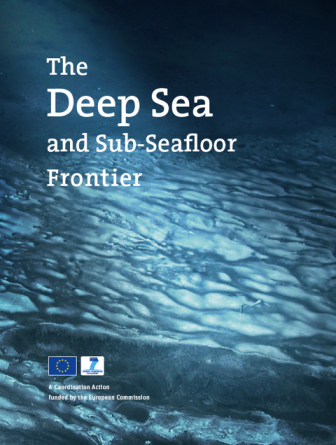 |
||
| Home Contact Imprint | ||
  |
Deep-Sea and Sub-Seafloor Frontier
The project brought together scientists from Europes major ocean research centres and universities to identify the primary issues that need to be addressed in sub-seafloor sampling with relevance to deep-sea ecosystems, climate change, geohazards, and marine resources in the next 10-15 years. It aimed to provide a pathway towards sustainable management of oceanic resources in the broadest sense on a European scale and to develop sub-seafloor sampling strategies for enhanced understanding of deep-sea and sub-seafloor processes by connecting marine research in life and geosciences, climate and environmental change, with socio-economic issues and policy building. Based on the above, a structure of nine work packages (WPs) was set up. They included three WPs focusing on life sciences (WP1 through -3) and another three leaning towards geosciences (WP4 through -6). The six work packages were bracketed by two others, WP 7 and WP8, which address what infrastructural requirements exist in order to reach the objectives of the former 6 WPs. Everything was held together by a ninth WP comprising the management, outreach, and interfacing between science and policymaking. The outcome of 8 expert workshops and two larger meetings in Brussels and Sitges during the 30-month Coordination Action can be summarised as follows: The deep sea and its sub-seafloor contain a vast reservoir of physical, mineral and biological resources that are rapidly coming into the window of exploitation. Assessing the opportunities and the risks involved requires a serious commitment to excellent deep sea research. There are numerous areas in this field in which Europe has cutting-edge technological potential. These include drilling and monitoring technology in the field of renewable energies such as geothermal, offshore wind and seafloor resources. Scientific ocean drilling will continue to play a valuable role, for example in the exploration of resource opportunities, in obtaining estimates for ecosystem and Earth climate sensitivity, or in improving understanding about the controlling factors governing processes and recurrence intervals of submarine geohazards. In Europe, there is also the scientific expertise needed to define a framework for policymakers for environmental protection measures and to carry out ecological impact assessments before, during and after commercial exploitation. Taking up these societal challenges will strengthen European scientific and educational networks and promote the development of world-class technology and industrial leadership. |
|
